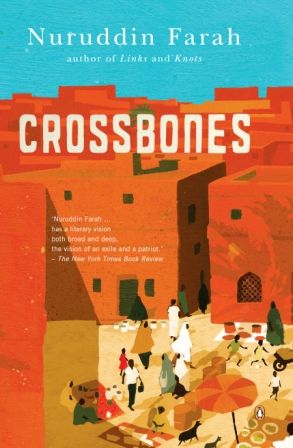Several African writers have paid tribute to former South African president Nelson Mandela in The New Yorker following his death last week. Among those who wrote about Madiba for the magazine are Pippa Green, veteran journalist and author of Trevor Manuel’s biography Choice Not Fate, acclaimed novelist Zoë Wicomb, Ethiopian author Nuruddin Farah and American author Philip Gourevitch, who is best-known for his book on the Rwandan genocide, We Wish to Inform You That Tomorrow We Will be Killed with Our Families.
Green’s piece is available to be read in full online. She recalls filing the article “Stinging Attack on Mandela Hits Him Below the Belt”, after the then-president had called her to relate how a swarm of bees had attacked him in his home in Qunu. She was so shocked by his revelation that she had failed to ask why he would tell these personal details to a journalist, but later found out that Madiba knew she would simply report the facts and not ascribe any sinister meaning to the incident, as some newspapers subsequently did. Green fondly remembers the “charming, though sophisticated and tactical, way” Mandela dealt with the media.
On a chilly Easter Saturday in 1998, I received an urgent message from Nelson Mandela’s press aide to call a phone number in the Eastern Cape. I was a reporter for a Sunday newspaper in Johannesburg at the time, but was on vacation in Cape Town and had just stepped off a wind-swept beach. So I was ill prepared for the conversation that followed.
I called. A woman answered the phone and I gave my name. Soon, a familiar voice boomed down the line. “I’m happy to hear from you,” said President Nelson Mandela, as though a call from a reporter on a Saturday afternoon was a pleasant surprise. But he wasn’t well, he said. The reason for his indisposition was a swarm of honey bees that had attacked him in his bathroom, while he was getting out of the bath.
Gourevitch’s article is also available in full:
At Robben Island Prison, a former leper colony and animal-quarantine station off Cape Town, Nelson Mandela—Prisoner 466/64—was kept by South Africa’s white-supremacist regime for eighteen years in an eight-foot-by-seven-foot cell. He was allowed to send one letter and to receive one letter every six months. On June 23, 1969, Mandela wrote to his daughters, Zenani, who was ten, and Zindziswa, who was eight. (Zeni and Zindzi, he called them.) “My darlings,” he began. “Once again our beloved Mummy has been arrested and now she and Daddy are away in jail.” Mandela was serving a life sentence for conspiring to overthrow the government by force as the leader of the armed wing of the African National Congress, and his then wife, Winnie, an A.N.C. activist, had just begun what would be a seventeen-month stint in Pretoria Central Prison, more than a year of it in solitary confinement. Mandela, who had not seen their girls since Zeni was three and Zindzi was eighteen months old, could only offer them cold comfort as—covering both sides of a foolscap sheet in well-disciplined script—he imagined their motherless plight: “It may be many months or even years before you see her again. For long you may live like orphans without your own home and parents, without the natural love, affection and protection Mummy used to give you. Now you will get no birthday or Christmas parties, no presents or new dresses, no shoes or toys. Gone are the days when, after having a warm bath in the evening, you would sit at table with Mummy and enjoy her good and simple food. Gone are the comfortable beds, the warm blankets and clean linen she used to provide. . . . Perhaps never again will Mummy and Daddy join you in House No. 8115 Orlando West, the one place in the whole world that is so dear to our hearts.”
Read snippets of Wicomb and Farah’s tributes:
In April, as joyful chants of “Maggie, Maggie, Maggie, dead, dead, dead!” reverberated through the streets of Glasgow, where I live, I heard the echo, as all South Africans surely did, of the floppy-bow-tied Iron Lady, Margaret Thatcher, calling the African National Congress a terrorist group. Nelson Mandela became a byword for virtue all the same. Every schoolchild knows of his contribution to democracy in South Africa, of the sacrifices he made, of his status as an icon of reconciliation.
For months before Nelson Mandela’s death, the world was fed news of his health in dribs and drabs; it was suggested that we pray for his speedy recovery. On the first day of April, one of the headlines read, “MANDELA OO SOO KABANAYAA,” meaning that he was “mending,” as if he had broken a bone and would be getting better.
Book details
- We Wish to Inform You That Tomorrow We Will be Killed with Our Families: Stories from Rwanda by Philip Gourevitch
EAN: 9780330371216
Find this book with BOOK Finder!
- Trevor Manuel: ‘n lewensverhaal by Pippa Green
Book homepage
EAN: 9780624047247
Find this book with BOOK Finder!
- The One That Got Away by Zoe Wicomb
EAN: 9781415200520
Find this book with BOOK Finder!
- Crossbones by Nuruddin Farah
Book homepage
EAN: 9780143530350
Find this book with BOOK Finder!



